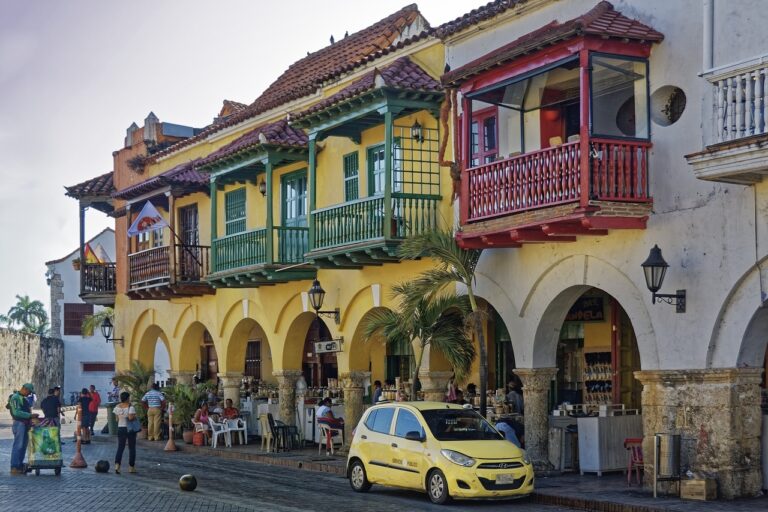What Are the 3 Major Impacts of Tourism and Hospitality?
Tourism and hospitality have three profound impacts on local communities, the environment, and cultural heritage. Economically, tourism generates revenue, creates jobs, and stimulates local growth, while also promoting cross-cultural exchange and understanding. However, the industry's rapid growth poses significant environmental threats, including pollution, habitat destruction, and climate change. In addition, tourism plays a crucial role in preserving cultural heritage sites and practices, yet also risks cultural homogenization and exploitation. As the industry continues to evolve, unsustainable practices must be addressed to foster a more responsible and regenerative approach that benefits both local communities and the environment, and taps the true potential of tourism.
Economic Impacts on Local Communities
Tourism and hospitality industries can have a profound impact on the economic well-being of local communities, often serving as a vital source of revenue and employment opportunities. In many cases, tourism can be a lifeline for rural or isolated areas, providing a much-needed injection of capital and stimulating local economic growth. As tourists flock to popular destinations, local businesses such as hotels, restaurants, and souvenir shops thrive, creating a ripple effect of economic activity.
The influx of tourists also generates significant tax revenue for local governments, which can be invested in infrastructure development, public services, and community projects. Additionally, the hospitality industry creates a substantial number of jobs, not only in hotels and restaurants but also in related sectors such as transportation, recreation, and entertainment. This, in turn, boosts local purchasing power and increases the overall standard of living.
Furthermore, tourism can also promote cultural exchange and understanding, fostering a sense of community and social cohesion. By showcasing local traditions, customs, and attractions, tourism can help preserve cultural heritage and promote cross-cultural understanding. As the tourism industry continues to grow, recognizing its potential to drive economic development and improve the quality of life for local communities is vital. By harnessing the economic power of tourism, local communities can tap into a brighter, more prosperous future.
Environmental Consequences of Mass Tourism
As the tourism industry's economic benefits are undeniable, the unchecked growth of mass tourism has a darker side, threatening the very environments that attract visitors in the first place. The sheer volume of tourists flocking to popular destinations has devastating consequences on the environment, including pollution, habitat destruction, and climate change. The once-pristine beaches, coral reefs, and forests are now plagued by litter, noise pollution, and human waste.
The influx of tourists also leads to the overconsumption of natural resources, such as water and energy, further straining local infrastructure. In addition, the construction of new hotels, resorts, and infrastructure to accommodate the growing number of tourists results in habitat destruction and fragmentation, displacing native species and ecosystems.
Furthermore, the carbon footprint of tourism is substantial, with air travel, transportation, and accommodation contributing notably to greenhouse gas emissions. The irony is that the very attractions that draw tourists, such as coral reefs and glaciers, are being destroyed by the very people who come to marvel at them. To mitigate the environmental consequences of mass tourism, the tourism industry must adopt sustainable practices, invest in eco-friendly infrastructure, and promote responsible travel behaviors.
Cultural Exchange and Heritage Preservation
One of the most significant byproducts of mass tourism is the cross-cultural exchange between hosts and guests, which can lead to a deeper understanding and appreciation of diverse cultural heritage. This exchange can foster mutual respect, tolerance, and cooperation, ultimately enriching the lives of both locals and tourists. In addition, tourism can provide economic incentives for preserving cultural heritage sites, historic monuments, and traditional practices.
- Cultural exchange programs, such as homestays and language classes, enable tourists to immerse themselves in local cultures and forge lasting connections with their hosts.
- Tourism revenue can be channeled into preserving cultural heritage sites, restoring historic buildings, and promoting traditional crafts and arts.
- Local communities can benefit from tourism by showcasing their unique cultural practices, music, and dance, thereby preserving their cultural identity.
- Cultural exchange can also facilitate the transfer of skills, knowledge, and ideas between tourists and locals, leading to a more interconnected and globalized world.
- In addition, tourism can promote cross-cultural understanding, dispelling stereotypes and misconceptions, and fostering global citizenship.

